- News
- Reviews
- Bikes
- Components
- Bar tape & grips
- Bottom brackets
- Brake & gear cables
- Brake & STI levers
- Brake pads & spares
- Brakes
- Cassettes & freewheels
- Chains
- Chainsets & chainrings
- Derailleurs - front
- Derailleurs - rear
- Forks
- Gear levers & shifters
- Groupsets
- Handlebars & extensions
- Headsets
- Hubs
- Inner tubes
- Pedals
- Quick releases & skewers
- Saddles
- Seatposts
- Stems
- Wheels
- Tyres
- Tubeless valves
- Accessories
- Accessories - misc
- Computer mounts
- Bags
- Bar ends
- Bike bags & cases
- Bottle cages
- Bottles
- Cameras
- Car racks
- Child seats
- Computers
- Glasses
- GPS units
- Helmets
- Lights - front
- Lights - rear
- Lights - sets
- Locks
- Mirrors
- Mudguards
- Racks
- Pumps & CO2 inflators
- Puncture kits
- Reflectives
- Smart watches
- Stands and racks
- Trailers
- Clothing
- Health, fitness and nutrition
- Tools and workshop
- Miscellaneous
- Buyers Guides
- Features
- Forum
- Recommends
- Podcast
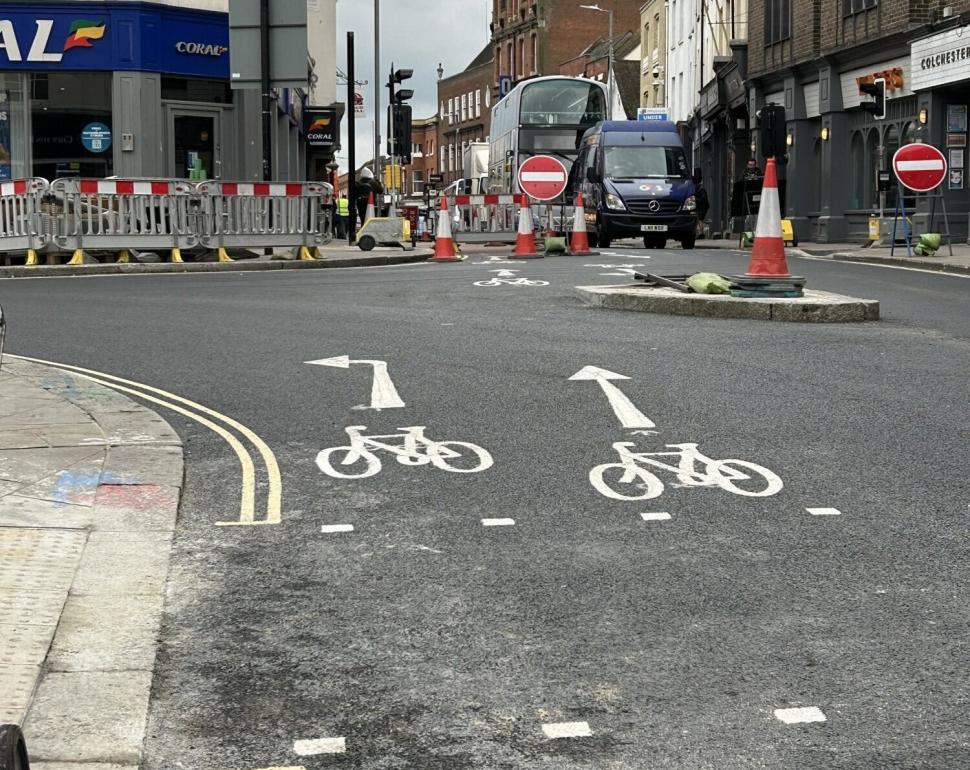 Head Street, Colchester (Colchester Cycling Campaign)
Head Street, Colchester (Colchester Cycling Campaign)Fines issued to pavement cyclists will be based on “behaviour, not location” says council, in town where female cyclist was fined £100 for riding on cycle path and others threatened with £1,000 penalties by “cowboy wardens”
Five months after instructing the private agency tasked with enforcing its controversial ban on cycling on pavements and in pedestrianised areas to stop fining cyclists with immediate effect, Colchester City Council has announced that it will soon reintroduce its penalty system for “anti-social” cycling.
However, the local authority has insisted that the future implementation of its Public Space Protection Order (PSPO) will be based on an “education first” model, and that fines will be issued based on “behaviour, not location”, focusing purely on “egregious cycling that causes alarm and distress” – and not “responsible” cyclists riding with consideration in banned areas.
The move has been welcomed by cycling campaigners in the city – instrumental in the council’s eventual decision to halt its fining process amid a public outcry over the seemingly targeted approach of wardens and their hefty penalties – who branded the new policy “cycle-friendly” and an example that “should be followed by other local authorities”.
In June, Colchester City Council brought a temporary halt to the fines, and apologised and agreed to waive all penalties mistakenly issued to cyclists for allegedly breaching the local authority’s rules on cycling in pedestrian areas and on pavements, after campaigners complained that people on bikes were being unfairly targeted by third-party wardens “running amok”.
These “cowboy” wardens were accused of discouraging people from cycling in the city, by mistakenly fining cyclists £100 for riding their bikes in areas where cycling is permitted, threatening them with a £1,000 penalty if they appealed the fine, and telling one elderly female cyclist that she wasn’t allowed to use a city centre road because she doesn’t pay “road tax”.
Between January and June this year, 62 cyclists were fined £100 each in Colchester by wardens employed by the Waste Investigations Support and Enforcement (WISE) agency, an external organisation subcontracted by Colchester City Council and at least 20 other local authorities across the UK where PSPOs are in place.
Of those 62 cyclists fined by WISE, the Colchester Cycling Campaign believes around 50 were issued penalties mistakenly or without due reason, such as while cycling on shared-use paths, on city centre streets where cycling is permitted, and while riding at walking pace on footways.
Residents also accused the wardens of “lying in wait” for cyclists to supposedly breach the PSPO, and complained about the third-party agency’s “opaque” appeals process, which they say was plagued by communication issues and threats of an increased £1,000 penalty for failing to pay the initial fine – reinforcing the belief among local cyclists that the enforcement was purely a “money-making scheme”.
The Colchester Cycling Campaign, which coordinated the vocal opposition to the PSPO and called for its wording to be amended, agued that the crackdown on people cycling in the city contradicted the council’s claim that the order is purely designed to prevent dangerous or damaging cycling behaviour.
The campaigners also claimed that it was having a stifling effect on cycling numbers in the city, and was preventing Colchester from achieving its aim of becoming a “cycling city”.
Despite the council assuring activists that fines would “only be used against cyclists riding at people and crossing flowerbeds”, the cycling campaign noted that the existing PSPO, introduced last autumn, is too open to interpretation and enabled WISE’s wardens to target cyclists for the most minimal of infractions.
After road.cc explored the furore surrounding the controversial PSPO – an increasingly popular (and controversial) method used by an increasing number of local authorities to clamp down on what they deem to be dangerous cycling and other “anti-social” behaviours – the council agreed to waive all recently issued and contested fines as part of a “reset” in its approach to city centre cycling, while suspending the system of fining entirely pending a review.
Since then, all fines brought to the city’s attention by the campaign were rescinded, while an unknown number of people who contacted the council directly had their penalties waived (though three applications were rejected on review).
The council admitted in June that it understood the “frustrations” of the city’s “responsible” cyclists concerning the PSPO’s implementation, while acknowledging that many of those fined were not committing a “significant breach” of the order, and that some of the alleged infractions – such as riding slowly on the pavement – are the result of poor cycling infrastructure in the city.
The local authority also promised to instruct its wardens to consider “aggravating circumstances” for cyclists accused of breaching the order, and not to issue fines as a first resort, with education instead taking precedence.
“It will be different this time around”
And now, five months on, Colchester City Council has continued this education first agenda, as it prepares to reintroduce fines for dangerous or anti-social cycling in the city.
At a council meeting last week, attended by Colchester Cycling Campaign members Will Bramhill and Nathaniel Catchpole, the local authority announced that the returning fines will be “on the basis of education first”, though examples of “egregious cycling that cause alarm and distress” will be excluded from this approach and subject to immediate fines.
The council officers also noted that future fines will be based on “behaviour, not location”, meaning that considerate cycling on the footway or in a pedestrianised area, or any other area where cycling is banned, will not automatically attract a fine.
The council promised that the changes which have been put in place concerning the implementation of the PSPO will ensure that “it will be different this time round”, with fewer fines and hopefully no contested penalties.
Colchester Cycling Campaign members Nathaniel Catchpole and Will Bramhill
During the meeting, the cycling campaign’s representatives also argued that cycling should be dropped entirely from the PSPO, and that directly employed wardens should take over from WISE’s “fine for profit” wardens at the first available opportunity.
“Existing laws cover bad cycling and it should be up to the police to enforce these,” the campaigners said.
However, the council replied that, “given the many other priorities for the police”, cycling will remain part of the PSPO, and that the current pressure on council finances and its wardens means that external contractors remain necessary to enforce the order.
Nevertheless, the local authority pointed out that wardens will now be fully trained on the Boateng principle – which allows cyclists to ride on the footpath, as long they do so considerately – as well as the importance of giving the exact location of an alleged offence.
Reflecting on the council’s new approach to the PSPO, William Bramhill, Colchester Cycling Campaign’s vice-secretary, told road.cc: “We are delighted that Colchester Council has taken this action, which is certainly cycle-friendly.
“The city has acknowledged Home Office guidance, the Boateng rule, on when not to issue fines to cyclists. Colchester’s ‘behaviour not location’ principle puts that into practice and this example should be followed by other local authorities,” he said, referring to the ongoing controversies surrounding similar cycling bans in Grimsby, Bedford, and potentially in Birmingham.
“At the same time the new approach will still allow wardens to fine inconsiderate cyclists, the type of riders who give all cyclists a bad name. We won’t name the city officers involved but a big thank you to them, as well as council leader David King. My colleague Nathaniel Catchpole has been a tremendous help.
“Colchester Cycling Campaign is working with the city to produce a charter to help other cycling groups and councils. This may go some way to addressing the problems of overzealous wardens in other areas.”
“It has been pointed out by some that these cycling penalties are like parking fines, but a parking offence is easy to prove. It is the subjective nature of ‘inconsiderate cycling’ that creates a problem. At least we now have ‘behaviour not location’ and ‘education first’ as defining principles.”
He continued: “There is still a problem with ‘fines for profit’ warden companies but this is less of an issue in Colchester purely because of the new rules of engagement. We will be interested to see how things work in practice.
“If PSPOs remain available to local authorities, we would like to see the remit extended to include car idling and aggressive driving.”
> “Why pick on a lone female cyclist?” Cyclist slapped with £100 fine – for riding on a cycle path
The controversy surrounding Colchester’s cycling PSPO began in earnest in March, when female cyclist Helge Gillmeister was issued with a £100 fine for, according to the warden who stopped her, “riding on the footpath” – when, in fact, the path in question has been designated a shared-use cycle route since 2011.
Then in May, two cyclists, Stuart Braybrooke and Thomas Roper, were fined on the same stretch of footway on different occasions while cycling at walking pace to avoid a notoriously dangerous roundabout, prompting Roper’s father Mike to accuse the council and wardens of displaying a lack of “common sense” when it comes to the safety of vulnerable road users.
Later that month, 67-year-old cyclist Judith Highfield was cycling with her partner Mark to the shops on Culver Street, when both cyclists were stopped by WISE wardens and fined for riding in a no-cycling zone and on the footway, respectively – despite the Colchester Cycling Campaign noting since that Culver Street West does not feature a ‘no cycling’ sign and that the current ‘no motor vehicles’ signage is outdated and should be replaced by a ‘pedestrian and cycle zone’ sign.
Judith, meanwhile, told road.cc that, when she informed the warden of the presence of parked cars and motorbikes on the road in question, the WISE employee allegedly responded by saying she shouldn’t be cycling on the street because she doesn’t “pay road tax”.
Local campaigners also received another report of a cyclist being fined for riding slowly along Culver Street West, along with anecdotal claims that people were stopped and fined for “pushing their bikes” on the street.
And in June, on Long Wyre Street, another elderly female cyclist was similarly riding her bike in an area with a ‘no motor vehicles’ sign when she was stopped and fined £100 by WISE wardens, who also claimed she was riding on the footpath – the same erroneous reason that was given to cyclist Will Innocent when he was stopped and fined by a warden for riding his bike on a street where cycling is permitted.
After obtaining a PhD, lecturing, and hosting a history podcast at Queen’s University Belfast, Ryan joined road.cc in December 2021 and since then has kept the site’s readers and listeners informed and enthralled (well at least occasionally) on news, the live blog, and the road.cc Podcast. After boarding a wrong bus at the world championships and ruining a good pair of jeans at the cyclocross, he now serves as road.cc’s senior news writer. Before his foray into cycling journalism, he wallowed in the equally pitiless world of academia, where he wrote a book about Victorian politics and droned on about cycling and bikes to classes of bored students (while taking every chance he could get to talk about cycling in print or on the radio). He can be found riding his bike very slowly around the narrow, scenic country lanes of Co. Down.
Latest Comments
- Steve K 2 sec ago
Find someone else who has already bought one over here, and ask to borrow their receipt.
- wtjs 34 sec ago
Yes, just as diligently as they no doubt prosecuted his family member in KD10 WER for the same, and for the mobile use...
- Steve K 4 min 52 sec ago
In general, I'd say bus drivers in London were far worse than black cab drivers.
- Rendel Harris 31 min 31 sec ago
Not to defend the police handling of the case in any way but unfortunately that doesn't make it a "slam dunk" prosecution as there is no law saying...
- wtjs 37 min 13 sec ago
Honestly, can't people just realise that different things work for different people...
- SteveBr 1 hour 26 min ago
Stop building bike lanes and just close a couple of car lanes. Much cheaper and more useful. Cars don't use the left lane anyway. They are too...
- wtjs 1 hour 33 min ago
There should be a disclaimer at the head of this report:...
- BikingBud 3 hours 1 min ago
Absolutely this, riders gonna crash it is a race. And tempering any aspect of that competitiveness would detract from the race but developing...
- webbierwrex 4 hours 21 min ago
I came to say the opposite, I always liked Giro shoes but they're insanely narrow. I hope they did change the fit.
- Aluminium can 9 hours 11 min ago
Frame weight is about a hundred grams less than a CAAD 12 disc, which can be picked up cheap these days on gumtree. Heck, get the CAAD12 non disc...
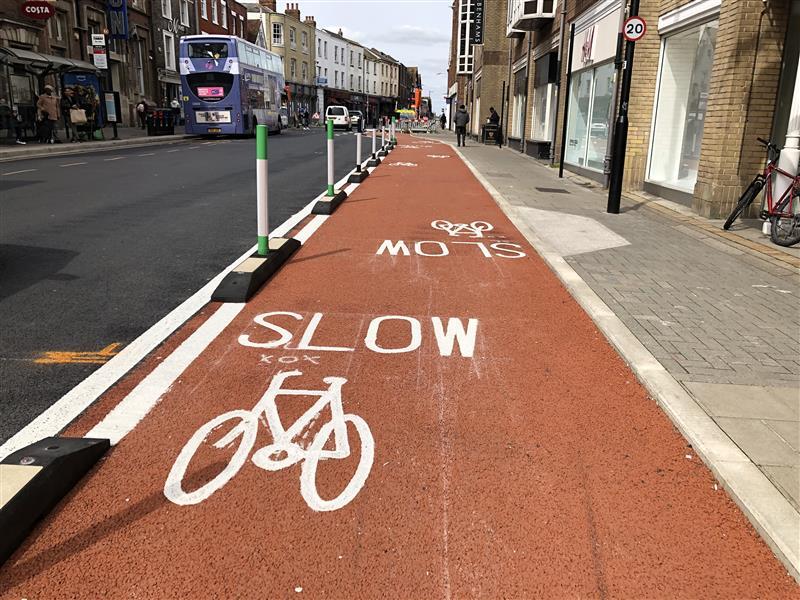


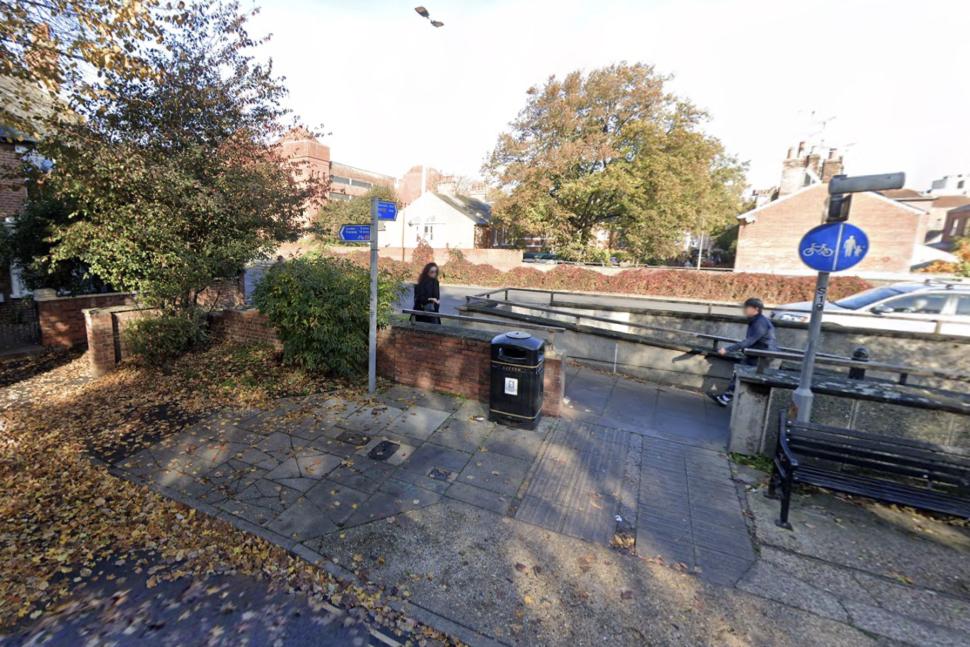
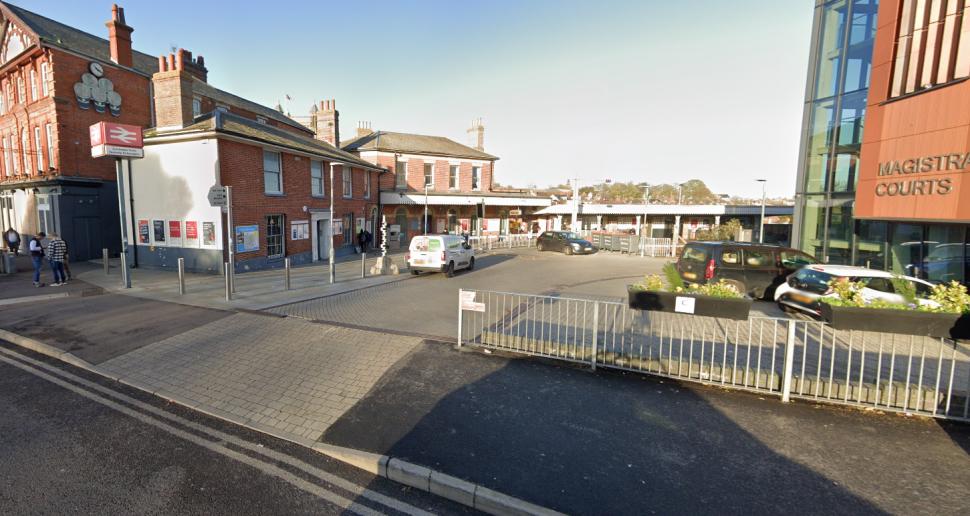
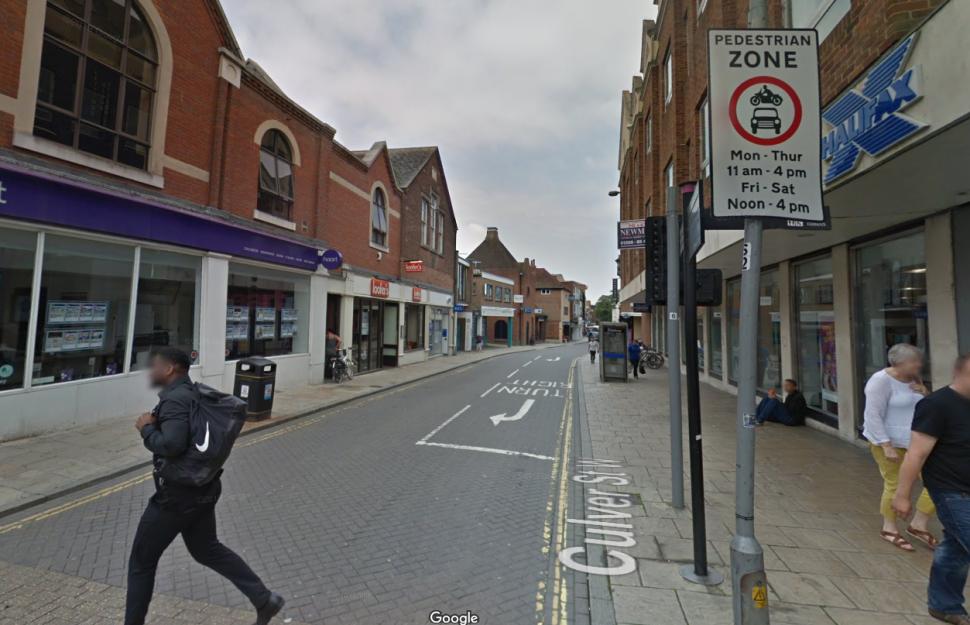
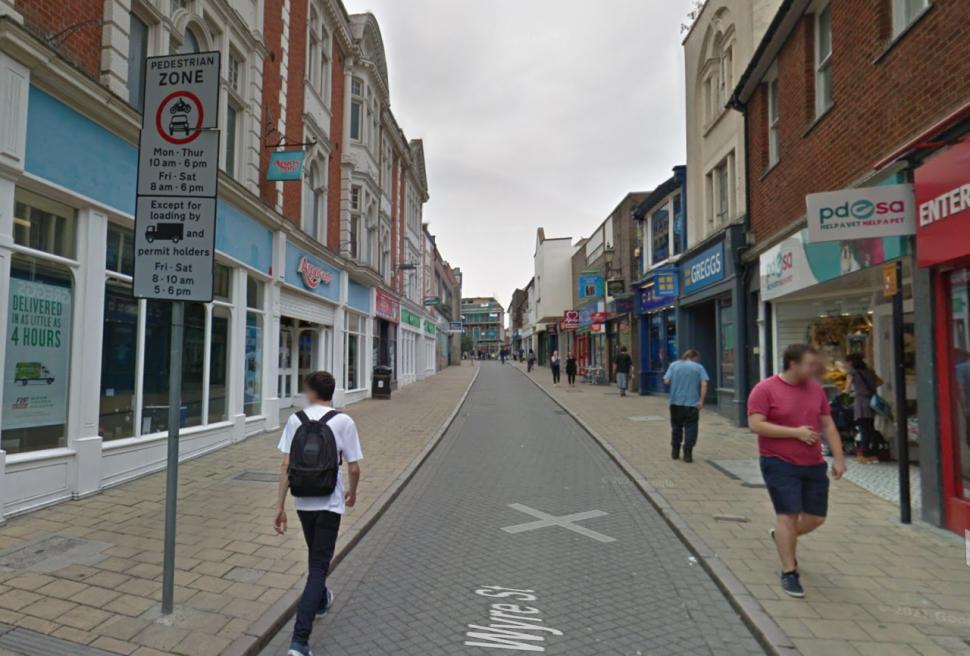
Add new comment
18 comments
Reality - We allow PSPO's to be enforced by private companies on commission basis.
IIRC this is banned for parking enforcement, because clearly the person on commission will then prosecute every single possible offence and make it near impossible to appeal...
Yet they claim that enforcement against cyclists will only occur with 'bad behaviour'...
Waste Investigations Support and Enforcement (WISE).....
No, not wise: stupid.
Strongarm Tactics Underming Public Interest and Discriminating?
Much better than what I was trying to concoct. But I'm not sure what "Underming" is.
Seems probably even more appropriate than what I originally intended.
A bit like underarm, surely?
Why is it stupid? Please explain.
All in the article - road tax.
Council issues statement to try and make bad publicity go away, but doesn't bother to give its contractors new instructions
I can't resist asking this:
Considering that us cyclists are not required to have registration plates on our bikes and the UK government does not require us to carry personal ID at all times, how are the authorities actually managing to prosecute riders? I'm guessing wardens have limitations on detaining members of the public, so I am amazed that riders don't just tell them to "Eff-off!" and ride on...
Simple, they target older or law abiding people and ignore the ones causing problems.
I believe that if they have the power to issue a fixed penalty notice that they also have that right to ask for your name and address, and that failing to provide those details could be an offence. They are likely to have bodycams so may be able to identify you if you leave.
What's the fine for parking in the cycle lane ?
At least in Edinburgh - despite recent welcome changes to prevent pavement driving and parking - it seems they're quite likely to be issued with an "it's fine"...
£100 bonus.
NB, Culver Street West, to the left of your pic, is cycleable. Mike Polom of Colchester Council has agreed to leave a gap in the cones so that cyclists can access it more easily. However, that doesn't help if White Van Man gives in to his arrogance.
White Van man was a Colchester City vehicle ! The loading bay 20m back was too far away.